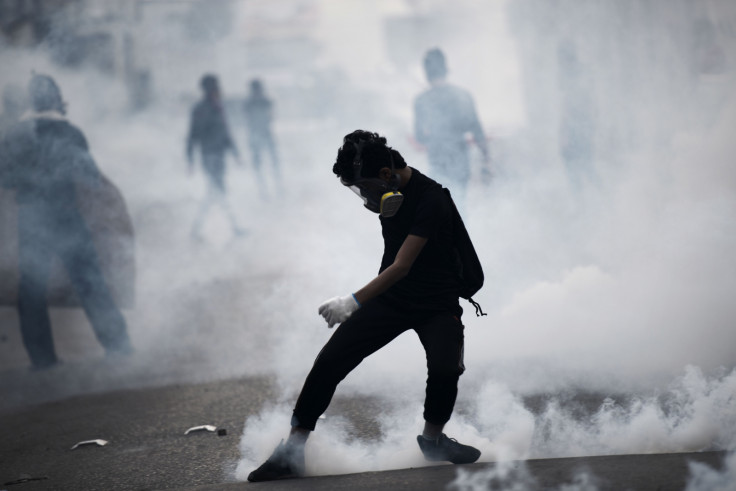Bahrain Grand Prix: War in Yemen will have major repercussions in Arab Gulf and beyond

Six children were among the first to die when Saudi Arabia began its war with an air strike against Yemen's Houthi rebels on March 25.
The actions of Saudi Arabia and its allies – including Egypt, Morocco, the United Arab Emirates, Qatar, Kuwait and Bahrain – are facilitating a humanitarian crisis in the fractured country.
Yemen was already in a bad enough state when Saudi Arabia declared its intervention. Internally, it was a tinder box and only a week before the war began, Islamic State-aligned terrorists bombed a mosque in Houthi-controlled Sana'a, killing at least 137 people.
For Saudi and its allies to intervene in Yemen is a tragedy upon an already tragically fractured country.
It isn't the first time Saudi Arabia has intervened in the affairs of one of its neighbours. Just as President Abdrabbuh Mansour fled to Riyadh and (so the Saudis claim) asked for their help, in 2011 the Saudis sent troops into Bahrain, also on the 'invitation' of its ruler, where they helped the government forces crush Bahrain's nascent democratic uprising.
In the four years between these two interventions, Saudi Arabia has also involved itself in the Syrian civil war and joined the coalition against Islamic State, the religious intolerance of which can be directly linked to Saudi Arabia's own state ideology.
'In 2011 the Saudis sent troops into Bahrain, also on the 'invitation' of its ruler, where they helped the government forces crush Bahrain's nascent democratic uprising.'
The UK, which under the current government has striven to build economic and military ties with the Gulf (the UAE and Saudi Arabia top the list of importers of British arms, spending over £10bn between them since 2010), has been quietly supportive.
The Foreign Office's website reveals no statement on Yemen, and the war broke out the week parliament dissolved ahead of the elections, so public statements have been understandably limited.
The only statement I've found is on the FCO's 'UK in Yemen' Facebook page which in one paragraph states: "We support the Saudi Arabian military intervention in Yemen following President Hadi's request for support", but in another that "the solution to the crisis must be a political one."
It further argues: "the international community will continue to use diplomatic and humanitarian support to achieve long-term stability, avoid civil war, economic collapse and a deeper humanitarian crisis in Yemen."
'There are 2.7 million Shia in Saudi Arabia, making up 12% of the population. Ruled by a Sunni monarchy and under a strict interpretation of Islam, Wahabbism, Shia are often portrayed as heretics or agents of Riyadh's major rival, Iran.'
Read Orlando Crowcroft's take on the language of hatred used against Saudi Shia here.
How these statements can be reconciled with each other is anyone's guess. Saudi Arabia's war is short-sighted, opportunistic and wholly self-serving. The only thing it will achieve in Yemen is to ruin any chance for stability and accelerate civil war and economic collapse.
As for a "deeper humanitarian crisis" – Yemen is already at the precipice.
Obama told the New York Times last week that the biggest threats facing the Gulf kingdoms "may not be coming from Iran invading. It's going to be from dissatisfaction inside their own countries."
That dissatisfaction is born of the autocratic models of governance in each kingdom. Bahrain, with its active political and rights movements, has already seen that dissatisfaction on the public stage.
Paranoid
The government of Bahrain is so paranoid about political discourse that it has criminalised criticism of the war in Yemen. Human rights defender Nabeel Rajab is the latest victim, and is now in police custody after criticising the human cost of bombing Yemen.
Two politicians were also arrested after their party criticised the war as unconstitutional, which is an indisputable fact. Whether one sees it as an aggressive or defensive war, article 36 of Bahrain's constitution forbids aggressive wars and requires parliamentary approval for defensive wars, and the latter was not sought in this case.
Bahrain was the first to consider criticism of the war a crime and to act on this criticism, but the other Gulf States will likely treat dissent in the same way. Does the UK remain supportive of this war in spite of its clear humanitarian and rights repercussions in Yemen and in the Gulf?
Saudi Arabia says it is supporting the legitimate government in Yemen. But it is farcical that a dictatorship should be going around deciding which government is legitimate. These are countries which must look to their own problems before they try to 'help' others.
The Obama administration did a good thing when they called for Nabeel Rajab's immediate release, while the UK Foreign Office has made no statement. The US and UK must hold their Gulf allies accountable on all matters. To not do so would be a betrayal of the people of Yemen struggling to survive and to the people of the Gulf struggling for their rights.
Sayed Ahmed Alwadaei is Director of Advocacy at Bahrain Institute for Rights and Democracy and served six months in prison in Bahrain in 2011.
© Copyright IBTimes 2025. All rights reserved.






















